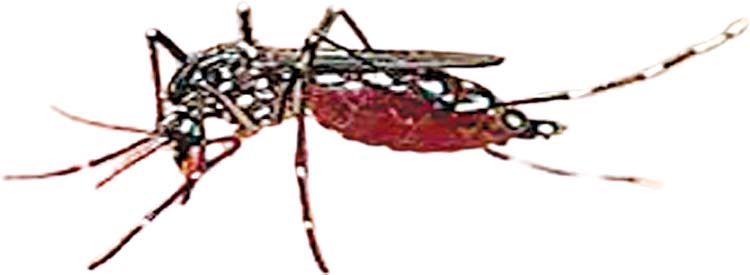New Delhi, Nov 4 (FN Bureau) Although the number of dengue cases has reduced this week by 540, the cumulative count of dengue cases in West Bengal continues to be the highest since 2017, said Dr Naresh Purohit, Visiting Professor at the Kolkata-based West Bengal University of Health Sciences, School of Public Health, on Friday. Voicing his concern on the spike in dengue cases that has largely affected all parts of Bengal amidst the plight of common people – Advisor, National Vector Borne Disease Control Programme – Dr Purohit told UNI here that the city of joy, Kolkata has unfortunately turned up as the leading city in terms of dengue cases as well as fatalities. He averred that according to Swasthya Bhavan recent data, West Bengal reported 5,396 cases in the current 44th week, which was 5,936 last week. The cumulative count of dengue cases till the 44th week this year 48,087 is the highest since 2017. The cumulative figure was 42,666 in the 43rd week, the highest in the past five years.
Noted Epidemiologist Dr Purohit averred that with 50 million people affected by dengue every year, causing approximately 4 per cent of death, according to the World Health Organization (WHO) estimates, it is calling for action to minimize illness and deaths from dengue. He pointed that large section of people in Kolkata are down with high fever, body ache and nausea – typical dengue symptoms – most are testing negative to the vector-borne viruses, though. “The symptoms are likely to be triggered by seasonal viruses like rhino virus, human meta- pneumo virus and influenza viruses which usually see a spurt at this time of the year,” he said. He pointed out that it is difficult to identify a virus unless a test is done. “Rapid, unplanned urbanisation is the main reason behind the current outbreak of dengue in West Bengal.
Large-scale construction work in Kolkata as well as semi-urban areas provide ample breeding ground for the female Aedes Aegypti mosquito, the vector of the disease, which breeds in clean stagnated water.”he revealed However, there is no treatment for dengue infection but the symptoms that a patient experiences can be managed. People fall into many myths and misconceptions, which cannot only make them vulnerable to this serious disease but can also give a frightening look to the disease. He said that keeping the house clean is the best possible way to reduce the chances of getting infected, Though it does not guarantee one will not get infected at all. “If somebody in your neighborhood has a breeding ground for mosquitoes (stagnant water), an infected Aedes mosquito may fly into your house as well and infect you. Notably, the flight range of this mosquito is 400 meters. Therefore, it is always said that preventing the onset of dengue can only be a collective effort and not of an individual” he added.

